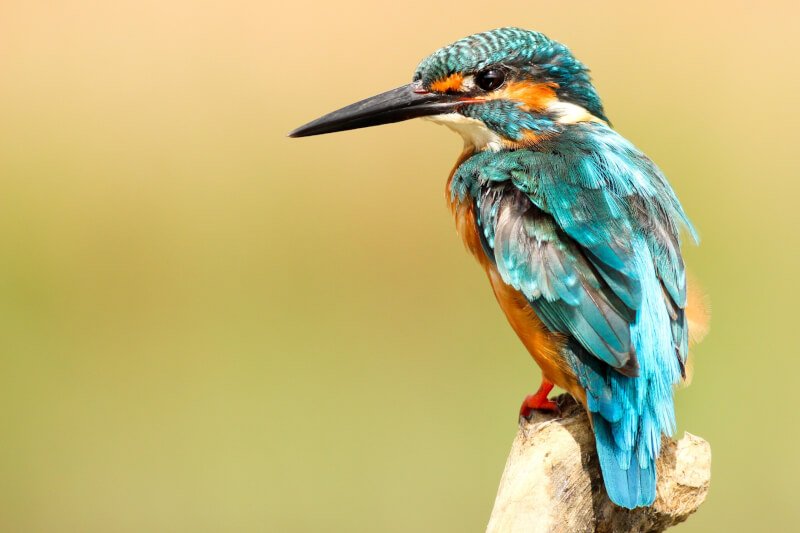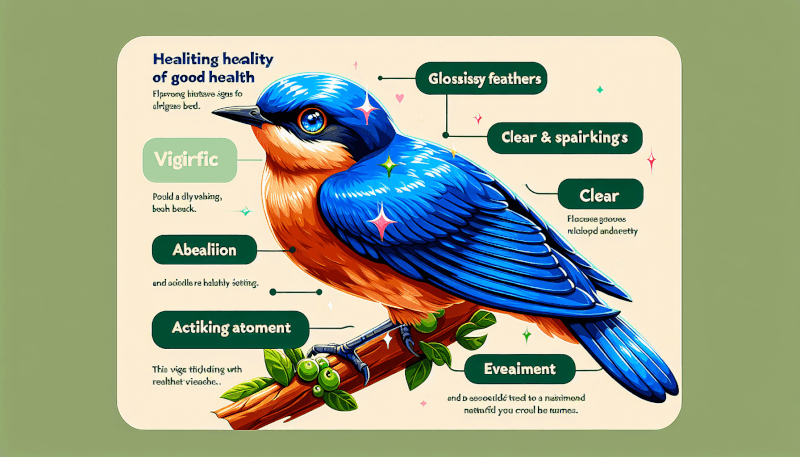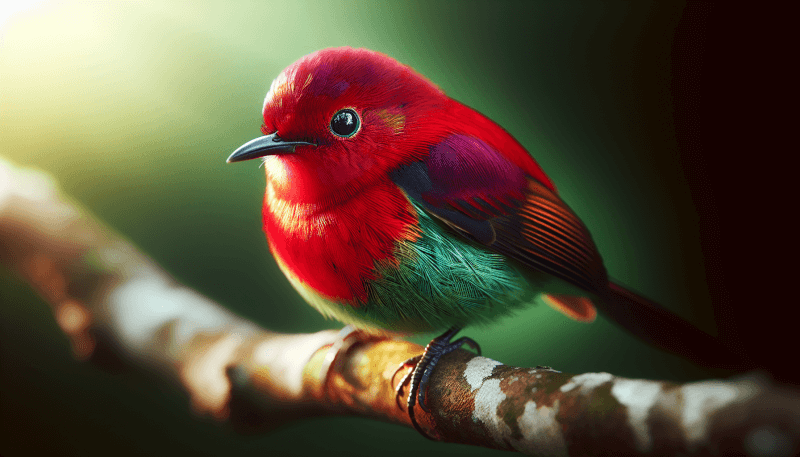When it comes to owning a pet bird, ensuring their good health is a top priority. But how can you tell if your feathered friend is in tip-top shape? There are several key signs to look out for that indicate a healthy bird. From a glossy and well-maintained plumage to a strong and alert demeanor, these signs provide valuable insights into your bird’s overall well-being. By being attentive and observant, you can easily spot these indicators and take the necessary steps to keep your bird happy and healthy.

Physical Appearance
Bright and Shiny Feathers
One of the key signs of a healthy bird is bright and shiny feathers. When your bird’s feathers are vibrant and lustrous, it indicates that they are receiving proper nutrition and taking good care of their plumage. Regular preening, which involves cleaning, oiling, and aligning their feathers, contributes to their shiny appearance. Healthy feathers also play a crucial role in maintaining body temperature and facilitating flight for your feathered friend.
Clean and Clear Eyes
Another indicator of a healthy bird is clean and clear eyes. When you look into your bird’s eyes, they should be bright, alert, and free from any discharge or cloudiness. Clear eyes are a reflection of good overall health and indicate that your bird’s immune system is strong and functioning properly. Eyes that are free from any abnormalities or signs of infection are essential for optimal vision and well-being.
Healthy Skin and Beak
A healthy bird will have smooth and supple skin, free from any redness, itchiness, or lesions. The skin should be well-moisturized, while the beak should be smooth and have no cracks or abnormalities. A bird’s beak is not only essential for feeding but also for climbing, grooming, and exploring its environment. Regular beak maintenance through chewing on toys and perches helps keep it in good condition. Healthy skin and beak are crucial indicators of a bird’s overall physical health.
Alert and Active Behavior
Observing your bird’s behavior can provide insights into their health. A healthy bird will exhibit alertness and activeness, showing an interest in its surroundings, and engaging in playful behaviors. Birds are highly intelligent creatures, and a lack of mental stimulation can lead to boredom and eventually, health problems. Regular interaction, toys, and a stimulating environment are vital to keeping your bird’s mind sharp and their overall well-being in check.
Appetite and Eating Habits
Healthy Weight and Body Condition
Monitoring your bird’s weight and body condition is crucial in determining their overall health. A healthy bird will maintain an appropriate weight for its species and age, neither being underweight nor overweight. An obesity or underweight can both be indicators of underlying health issues or improper diet. Regular weigh-ins and body condition assessments by a qualified avian veterinarian can help ensure your bird is in optimal health.
Regular Feeding Behavior
A healthy bird will exhibit regular feeding behavior, meaning they eat their meals at regular intervals and show enthusiasm while doing so. Birds have high metabolisms and require a balanced diet to thrive. They should display a consistent appetite and eagerly consume their provided food. It is important to provide a varied diet that includes fresh fruits, vegetables, high-quality seeds, and a reliable source of protein to satisfy their nutritional needs.
Balanced Diet Intake
Offering a balanced diet is vital for maintaining your bird’s health. A healthy bird’s diet should include a variety of foods rich in essential nutrients, vitamins, and minerals. This includes pellets specifically formulated for their species, fresh vegetables, fruits (in moderation), and occasional treats. Avoid feeding your bird with too many seeds, as they are high in fat and low in nutritional value. Consult with an avian veterinarian to determine the ideal diet plan for your bird’s specific requirements.

Respiratory Health
Clear and Regular Breathing
Observing your bird’s respiratory health is crucial, as respiratory issues can be a significant concern. A healthy bird will exhibit clear and regular breathing, with no signs of wheezing, coughing, or labored breath. If you notice any respiratory abnormalities, it may indicate an underlying respiratory infection or other health issues. Prompt veterinary attention is necessary to ensure your bird receives proper treatment and support for their respiratory health.
No Discharge from Nostrils
Healthy birds should have clear nasal passages, without any discharge or blockages. If you notice any mucus, discharge, or crusting around your bird’s nostrils, it may be a sign of respiratory infection or other nasal issues. A veterinarian specializing in avian health can provide the necessary evaluation and treatment to address the underlying cause and promote your bird’s respiratory well-being.
Normal Sound of Breathing
When your bird is breathing properly, you should hear a smooth and consistent sound. Normal breathing should not be accompanied by any wheezing, clicking, or raspy noises. If you notice any abnormal sounds while your bird is breathing, it may indicate a respiratory problem or blocked airways. Seeking professional assistance is essential to diagnose and address any potential respiratory concerns that your bird may be experiencing.
Digestive System
Regular Droppings
Monitoring your bird’s droppings is an essential part of assessing their digestive health. Healthy droppings should be well-formed, neither too loose nor too firm, and have distinct components – feces, urine, and urates. Any sudden changes in color, consistency, or odor may indicate digestive issues or underlying health problems. Regularly observing and tracking your bird’s droppings will help you identify any potential concerns and seek appropriate veterinary care promptly.
Proper Digestion
A healthy bird will exhibit proper digestion, which involves the breakdown and absorption of nutrients from their food. Signs of good digestion include regular droppings, no straining or discomfort during elimination, and a lack of abnormal smells. If your bird demonstrates signs of improper digestion, such as constipation or diarrhea, it is crucial to consult an avian veterinarian to identify the cause and provide appropriate treatment.
No Signs of Diarrhea or Constipation
Healthy bird droppings should not be overly watery or contain visible signs of undigested food. Diarrhea can indicate an imbalance in the digestive system or a bacterial or viral infection. On the other hand, constipation can lead to discomfort and potentially harmful impactions. Monitoring your bird’s droppings will help you identify these potential digestive issues and take appropriate action to ensure their digestive system remains healthy.

Behavior and Social Interactions
Vocalization and Communication
Birds are known for their vocalization, and healthy birds will actively communicate through a variety of sounds. They may sing, chirp, or mimic human speech. A significant change in vocalization, either an increase or decrease in frequency, may indicate stress or health issues. Regular and appropriate vocalization is an expression of a bird’s overall well-being and their contentment in their environment.
Interaction with Other Birds or Animals
Birds are social creatures, and interacting positively with other birds or animals is important for their mental and emotional well-being. Healthy birds will engage in playful interactions, grooming behaviors, and establish social hierarchies with their fellow companions. Lack of interaction or aggressive behavior towards other birds may suggest underlying health or socialization problems. Providing opportunities for socialization is essential to ensure your bird’s mental health and overall happiness.
Playfulness and Curiosity
Healthy birds are naturally curious and exhibit playful behaviors. They enjoy exploring their surroundings, investigating new toys, and engaging in physical activities. A lack of playfulness or reduced curiosity can be signs of underlying health issues or a need for mental stimulation. Providing a stimulating environment with toys, puzzles, and regular interaction can help foster your bird’s natural playfulness and enhance their overall well-being.
Physical Activity and Exercise
Ability to Fly and Perch
A healthy bird should be able to fly or at least have the desire to do so. Flight is an essential aspect of a bird’s natural behavior and contributes to their physical and mental well-being. Birds should also be able to perch and move around their environment with ease. Regular exercise through flight and perching helps maintain muscle tone and cardiovascular health, ensuring your bird’s physical well-being.
Regular Wing Flapping
Wing flapping is an essential exercise for birds, as it helps strengthen their flight muscles and promotes overall fitness. A healthy bird will engage in regular wing flapping, either during grooming, play sessions, or when expressing excitement. If your bird is consistently avoiding wing flapping or shows signs of wing weakness, it may indicate potential health concerns and should warrant professional evaluation.
Engagement in Physical Play
Regular physical play is essential for maintaining a healthy bird. Birds are intelligent and require mental and physical stimulation to thrive. Toys that encourage climbing, swinging, and foraging can provide necessary physical exercise and mental enrichment. Regular interaction with your bird, including playtime sessions, is crucial for their overall health and happiness.

Mental and Emotional Well-being
Curiosity and Exploration
A healthy bird will exhibit a natural curiosity and fascination with their surroundings. They will actively explore their environment, investigate new objects, and show interest in their surroundings. Lack of curiosity or a sudden change in behavior towards their environment may indicate boredom, stress, or underlying health issues. Providing a stimulating environment and interactive toys will help promote your bird’s mental and emotional well-being.
No Signs of Aggression or Fear
A healthy bird will not display excessive aggression or fear towards their caregiver or other individuals. They should feel secure in their environment and show trust towards their human companions. Birds experiencing chronic stress, health issues, or inadequate socialization may exhibit aggressive behavior. Understanding and addressing the underlying cause of aggression or fear is necessary to ensure your bird’s mental health remains intact.
Relaxed and Content Behavior
A healthy bird will exhibit relaxed and content behavior. They should show signs of comfort, such as preening, stretching, and engaging in normal bodily functions without any signs of stress. If your bird appears constantly agitated, fluffed up for extended periods, or exhibits abnormal postures, it may indicate health issues or stressors in their environment. Regular monitoring of your bird’s behavior and environment can help ensure their mental and emotional well-being.
Feather Health
No Signs of Feather Plucking
Feather plucking, also known as feather picking, is a behavior exhibited by some birds as a result of stress, boredom, or underlying health issues. A healthy bird will not engage in excessive feather plucking, and their feathers should remain intact and undamaged. If you notice any signs of feather plucking, it is essential to address the underlying cause to prevent further damage to your bird’s plumage and promote their overall well-being.
Intact and Even Feather Patterns
Healthy feathers should have an intact and even pattern, with no bald patches or irregularities. Feather patterns vary among different bird species, but any sudden changes in their feather condition may indicate underlying health problems or poor nutrition. Regular grooming, a balanced diet, and environmental enrichment are essential for maintaining your bird’s feather health.
No Excessive Molting
All birds will experience molting, shedding old feathers and replacing them with new ones. However, excessive molting or molting at irregular times may indicate underlying health issues or stress. Proper nutrition, an adequate photoperiod, and a stable environment are essential for supporting healthy molting and ensuring your bird maintains its beautiful plumage.

Eyes and Ears
Clear and Bright Eyes
A healthy bird will have clear and bright eyes, indicating good overall health. Their eyes should be free from any redness, swelling, or discharge. Dull or cloudy eyes may indicate underlying health concerns or eye infections. Regular observation of your bird’s eyes will help identify any potential issues and allow for timely veterinary intervention if necessary.
No Ocular or Auditory Discharge
Healthy birds will have no discharge from their eyes or ears. Any discharge, excessive earwax, or signs of pain or discomfort may indicate an infection or other health problems. Regular cleaning and maintenance of your bird’s eyes and ears, as well as routine veterinary check-ups, will help ensure their ocular and auditory health remains in good condition.
Responsive to Visual and Auditory Stimulation
A healthy bird will respond appropriately to visual and auditory stimulation. They will exhibit natural reactions to various sounds and visual stimuli in their environment. Excessive startle responses, aversion to certain visual cues, or unresponsiveness may indicate underlying health or sensory issues. Regular monitoring of your bird’s responses to visual and auditory stimuli will help indicate any potential concerns that need to be addressed.
Reproductive Health
Normal and Balanced Hormonal Cycles
Female birds may experience hormonal changes and exhibit nesting behaviors during certain times of the year. However, these changes should be balanced and not excessive. Excessive hormonal changes can lead to egg-laying complications or aggressive behavior. Providing appropriate environmental cues, such as a stable light and temperature cycle, can help regulate your bird’s hormonal cycles and maintain their reproductive health.
No Excessive or Abnormal Behaviors
Healthy birds will not exhibit excessive or abnormal reproductive behaviors. Male birds may engage in courtship displays, singing, or territorial behaviors, which are considered natural. However, prolonged or aggressive behavior related to reproductive activities may indicate hormonal imbalances or stress. Observing these behaviors and seeking professional guidance, if necessary, can help maintain your bird’s reproductive health.
Healthy Breeding and Nesting Habits
Breeding and nesting behaviors should be exhibited by adult birds during appropriate times if they are intended for breeding purposes. Healthy birds will engage in proper nest building, incubation, and caregiving behaviors. Any abnormal nesting habits, such as continual egg-laying without a break or difficulties in incubation, may indicate reproductive issues or nutrient imbalances. Appropriate monitoring and support during breeding and nesting periods are essential for your bird’s reproductive health.
In conclusion, monitoring your bird’s physical appearance, appetite and eating habits, respiratory health, digestive system, behavior and social interactions, physical activity and exercise, mental and emotional well-being, feather health, eyes and ears, and reproductive health are crucial for ensuring their overall well-being. Regular observation, maintaining a healthy diet, providing appropriate environmental enrichment, and seeking professional veterinary care when necessary will help you maintain a happy and healthy bird companion.


